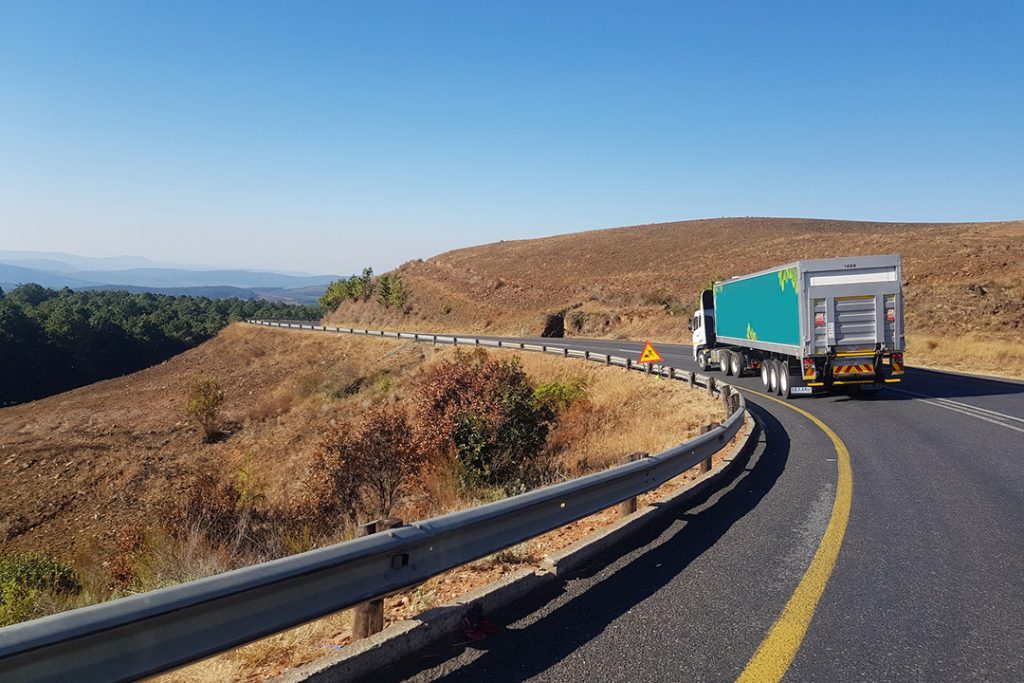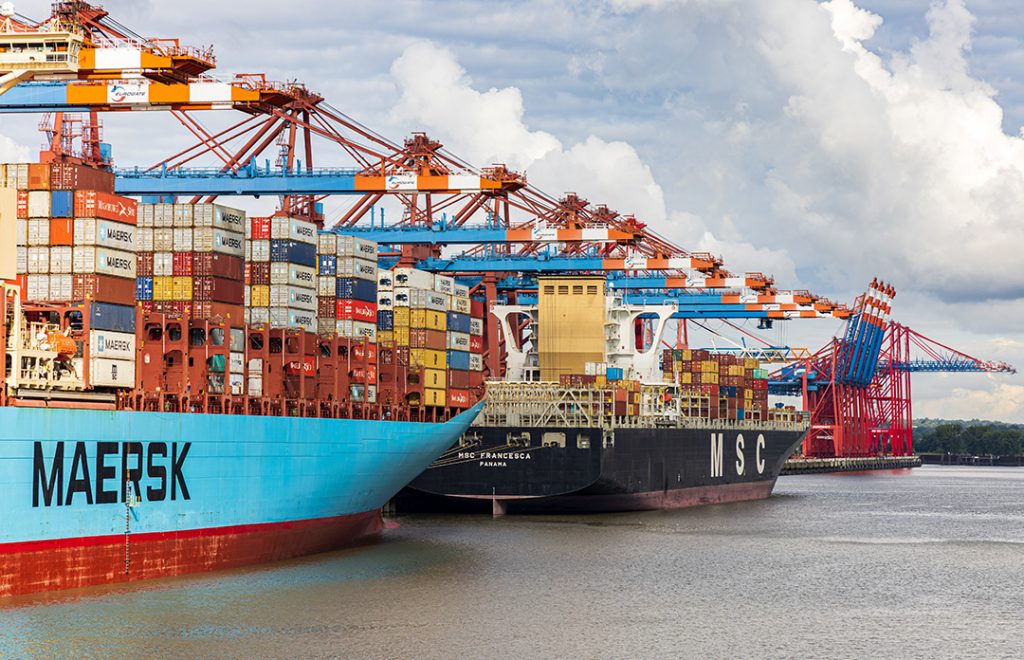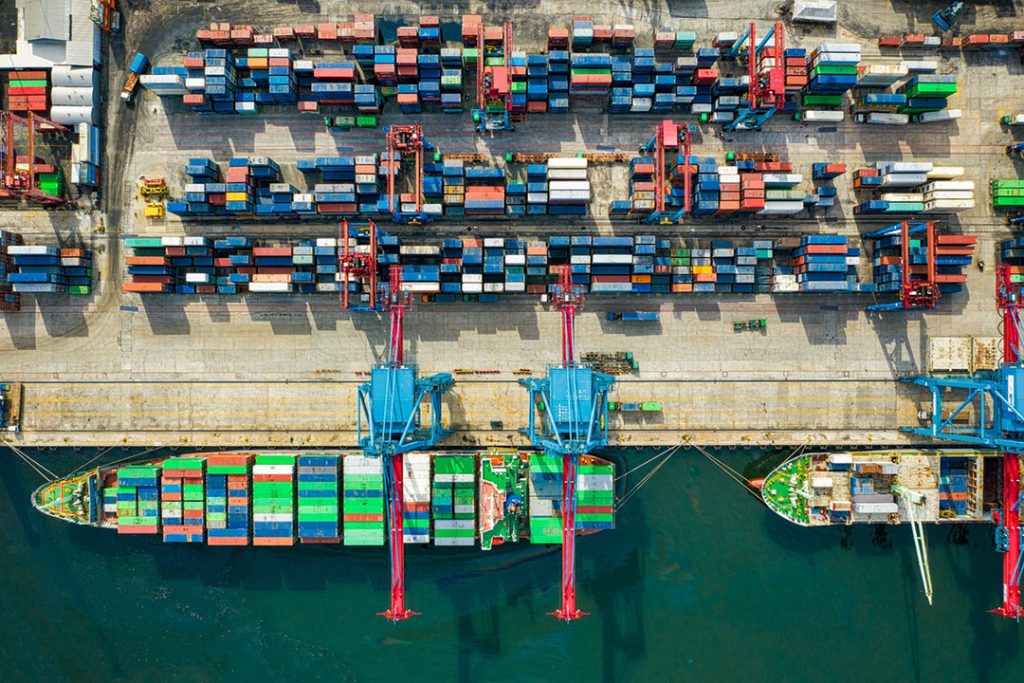Bulk bags must be transported safely to protect both the integrity of the goods being moved and the health of the employees. Following established transport safety procedures, in line with ISO standards, is essential to responsible logistics and goes beyond simple compliance. Best practices for bulk bag handling and storage help create a more efficient supply chain by reducing the possibility of mishaps, product damage, and expensive delays.
Custom Bulk Bags is a leading manufacturer and supplier of bulk bags in South Africa. We produce up to 3.5 million units per year, and our products can safely hold between 500kg and two tonnes of material per bag. We offer various customisable bulk bags and aim to match your bags to your specific needs.

Main considerations for bulk bag transport
Some important factors need to be taken into account to guarantee the safe and secure transportation of bulk bags:
1. Using the correct transportation equipment – It’s important to use the right equipment for lifting and transporting bulk bags. The most popular tool is the forklift, which needs to be able to lift the loaded bags – some of which can weigh two tonnes. The forklift operator needs to be trained in weight distribution and know how to engage lifting loops or tunnel sleeves. Similarly, cranes and hoists can be used, especially when loading and unloading railway carriages or ships.
2. Using pallets – There are several benefits to moving bulk bags on pallets. These wooden products help to prevent abrasion and damage from direct contact with the ground or the trailer bed. Pallets also offer a sturdy base when stacking bulk bags and make it easier and quicker to load and unload using pallet jacks or forklifts. To avoid pallet failure during transit, use the correct-sized pallet to support the weight and dimensions of the loaded bulk bags. Using strapping or stretch wrap to secure the bulk bags to the pallets will improve stability and stop them from moving.
3. Avoid overloading – Exceeding a bulk bag’s Safe Working Load (SWL) is a major safety risk. Before filling, always check the bulk bag’s SWL to make sure the loaded weight doesn’t go above it. In addition to being vulnerable to rupturing or tearing, overloaded bags can become unstable and more difficult to handle safely. To avoid overloading, stringent weighing protocols must be used during the filling process.
4. Effective stacking methods – The correct stacking methods must be used. Refer to the new ISO guidelines for stacking to preserve stability and prevent damage when moving bulk bags. Stack bags evenly so that the weight is distributed over a stable base. Ensure the lower layers of the stack can sustain the weight of the bags above. Use load dividers and interlocking layers to improve stability, particularly when travelling long distances or on uneven roads.
5. Protective covers – Using protective coverings can help, depending on the weather and the type of goods being transported. Stretch wrap or tarpaulins can cover the bulk bags from UV rays, rain, and dust, protecting the fabric and preventing contamination of its contents. For materials that are susceptible to moisture or sunlight, this is especially important. To keep the protective covers from slipping off during transportation, make sure they are firmly fastened.
6. Securing bulk bags – Bulk bags must be securely fastened, regardless of the mode of transport, to avoid moving or toppling over while en route. This may entail securing the bags on trucks and trailers using straps, netting, or load bars. Proper strapping and fastening within the containers or cargo holds are essential for shipping by train or sea.

The best ways to move bulk bags
The “best” method for moving bulk bags will vary, depending on the quantity, distance, and type of goods.
- Truck and trailer – Truck and trailer transport is often the most sensible choice for shorter distances and more flexible delivery dates within South Africa and its neighbouring countries. Make sure there is nothing on the trailer bed that could damage the bulk bag fabric. Use the proper strapping or netting to attach the bags and divide the load evenly across the trailer. Checking the load frequently during transit, especially over long distances or uneven roads.
- Train – Train transport can be an affordable option for moving bulk bags in large quantities over considerable distances. As with trailers, railway carriages must be loaded and secured properly. To prevent shifting, use dunnage bags or other fastening equipment. South Africa has a dependable railway network between major ports and cities, so it can be a cost-effective mode of transport.

Optional extras for improved transportation
Several design features can be used on bulk bags to facilitate and improve transportation. Firstly, tunnel sleeves and lifting loops can improve handling efficiency. Lifting with forklifts is made easier with tunnel sleeves, especially when lifting heavier loads.
Secondly, internal fabric panels called baffles can also be stitched into the bulk bag’s fabric. When filled, these baffles aid in keeping the bag square, which increases stability throughout transit and makes stacking safer.
Thirdly, discharge spouts with a good design minimise spills and dust emissions during transit. Full-bottom close bags are the safest and most stable, but this can make it harder to discharge your product when it reaches its destination.
Lastly, steering loops can be fitted to the external fabric of the bulk bag. During loading and unloading, the bags can be easily manoeuvred and positioned with the help of these tiny loops placed at the bottom of the bags.

Your source of customised bulk bags
As a top supplier of bulk bags in South Africa, Custom Bulk Bags is committed to giving our clients packaging solutions that satisfy their unique transportation requirements. Our knowledgeable staff can help you with the ordering process and offer suggestions for the best bag styles and features to guarantee the speedy and safe delivery of your goods.
Following these tips and guidelines will allow you to transport your bulk bags safely, whether you choose road, rail, air or sea freight. The principles remain the same: use proper stacking techniques, consider covering the base of the container with pallets, and use strapping to secure the bags. For more information about our bulk bags or to get advice on the ideal designs, please contact us today.
___
Custom Bulk Bags is a leading South African manufacturer of woven polypropylene bags for various industries, such as mining, chemicals and food. We are a Level 2 B-BBEE manufacturer and supplier and fall under the ownership structure of Deneb Investments Limited. For more information on our products, contact sales@custombulkbags.co.za
